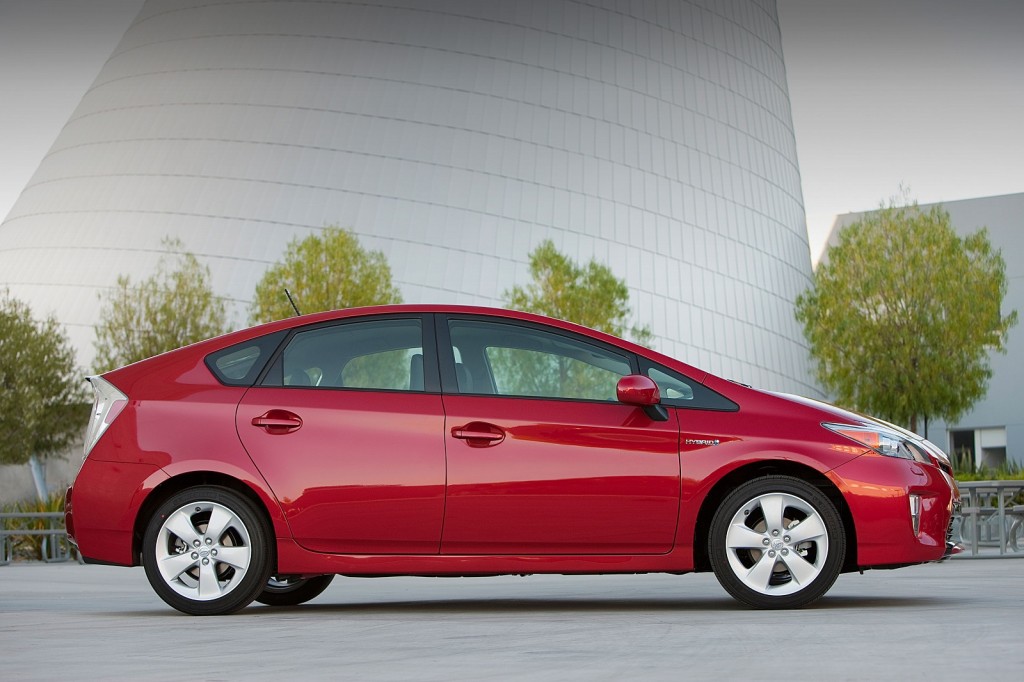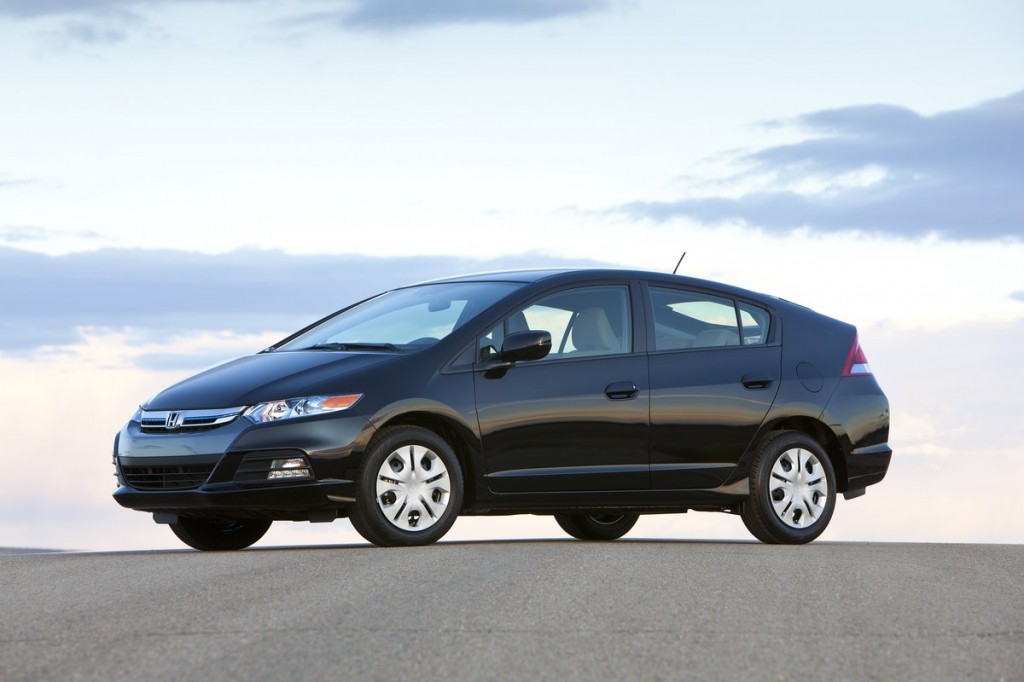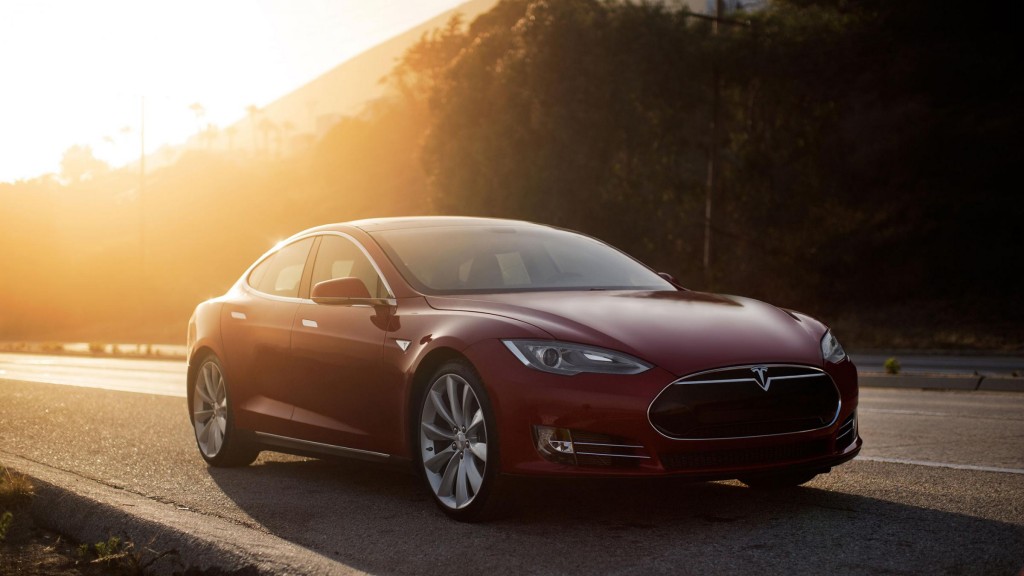You see a lot in the press these days about the low sales of plug-in electric cars.
While deliveries have risen every year--and have outpaced hybrid sales at the same point after launch--electric cars clearly remain only a tiny piece of the global car market today.
But those low sales nonetheless require a huge amount of battery capacity.
DON'T MISS: Plug-In Electric Car Sales In Aug: All-Time Leaf High, Volt Best In 12 Months
Depending on your assumptions and calculations, in fact, electric cars to date may already have used as much battery capacity as every hybrid built in 17 years.

2015 Toyota Prius Liftback
Recently, we asked two loyal readers and contributors to estimate the relative kilowatt-hours for electric-car versus hybrid sales.
Both like data, enjoy research, and dived in enthusiastically
2013 U.S. sales
Regular reader and occasional contributor John C. Briggs replied with a spreadsheet, saying, "Ya know, this stuff is far more interesting than my pesky day job."
He looked at U.S. sales for a single year (2013), estimated average hybrid battery-pack size at 1.1 kWh, listed the highest-selling models, weighted plug-in sales by pack size, and derived the following estimate:
- Plug-in electric vehicles: 2,500,000 kWh
- Hybrid vehicles: 500,000 kWh
While most Toyota hybrid packs are more likely to be 1.4 kWh, that average could be slightly lower due to mild-hybrid packs of 0.6 kWh or so from Honda (which he didn't include).

2014 Honda Insight
Overall, Briggs' ratio seems about right to us, though to accommodate some of the Honda hybrids he didn't include, we might knock the ratio down to four or so.
In other words, last year's U.S. electric-car sales already used four to five times the battery capacity of hybrid sales.
READ: Brammo Electric Motorcycle Prices Cut By $5,000 To $7,000
Worldwide total over time
Our second contributor was enthusiastic tipster Brian Henderson, who looked at total vehicle sales worldwide since 1997, when the first Toyota Prius went on sale in Japan.
He estimated a 10-to-1 ratio for electric-vs-hybrid pack size, which we suggest might be a little low. The calculation is challenging, though, because plug-in pack sizes vary far more than do hybrid packs.
Today's plug-in packs range from the 4.4 kWh in the Toyota Prius Plug-In Hybrid to the 85-kWh pack in the top Tesla Model S--a size difference of 20 times.

2014 Tesla Model S
Hybrid packs vary only from the 0.6 kWh of a Honda or GM mild hybrid to the 2.4 kWh of a large full-hybrid SUV.
Taking Toyota's 1.4-kWh hybrid pack and the 24-kWh pack of the world's best-selling electric car, the Nissan Leaf, as representative averages, we get a ratio of about 17-to-1.
But that figure could be made more accurate by building a sales-weighted average for the 500,000 or so plug-in cars sold to date. (We didn't calculate that.)
DON'T MISS: Tesla Gigafactory Going To Nevada, Apparently (First One, Anyhow)
Almost there, or passed months ago?
Wikipedia gave Henderson a figure of 7.5 million hybrids sold worldwide over the last 15 years, with roughly half a million plug-in electric vehicles on the roads.
Using his 10-to-1 ratio, plus some assumptions about global sales growth rates for hybrids versus electric cars, he calculated that total plug-in electric battery capacity will rise to equal that of every hybrid built over the last 17 years by sometime late this year.

2015 Nissan Leaf
If you use our higher ratio of 17-to-1, we've already crossed that mark--several months ago, in fact.
Henderson noted that he ignored batteries for two-wheeled electric vehicles, far more numerous on the world's roads than electric cars--and which have no hybrid equivalent.
Huge cell capacity needed
The main point of this little exercise is to highlight how huge the demand for lithium-ion batteries will be as sales of plug-in electric cars increase over the coming years.
It's why Tesla is building its first so-called gigafactory for the planned Model 3 electric in 2017 or 2018: Capacity won't otherwise exist.
But it remains an open question for the rest of the world's automakers and their battery suppliers: Where will that capacity come from?_______________________________________________













